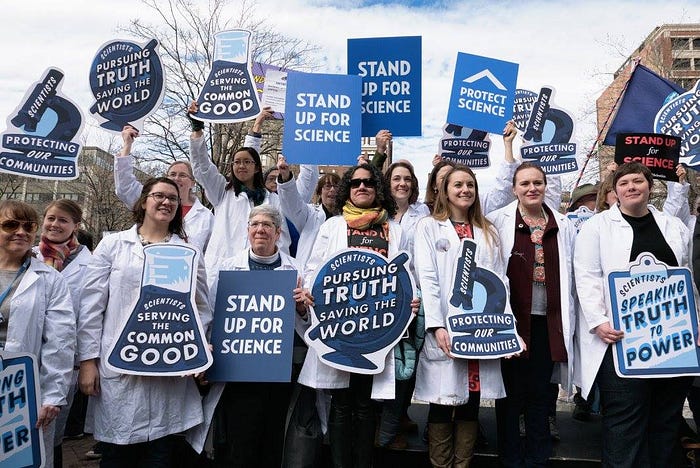Eppur si muove!
Alice Cunha da Silva, Ana P. S. Carvalho, Daniele de Azevêdo Baeta, Danila Carrijo da Silva Dias, Janaína Dutra Silvestre Mendes, Jaqueline A. A. Calábria. On behalf of 500 Women Scientists and Women in Nuclear Brasil\
This article was originally published in Portugese by O Tempo. Read or listen to it there!

Between the acknowledgement of the first case of COVID-19 in China and the first one recorded in Brazil, there was a gap of almost two months. This would have been enough time for the Brazilian government to define national strategies and actions in response to the new threat. Nevertheless, today we represent one of the world’s worst outlooks. It would not be the first time that science denialism affects the humankind, but it may be the first amid a worldwide emergency.
The rejection of well-established concepts has always coincided with numerous discoveries. Galileo Galilei proved, in 1662, that the geocentric system was wrong. In fact, it was actually Earth that moved around the Sun (and not vice versa). This discovery almost cost him his life. When he was summoned, to avoid a death sentence, he had to withdraw the statement. Rumor has it that at the end of his sentence, upon leaving the court for the imposed house arrest, he whispered: ‘eppur se muove!’ (But it moves!), alluding to his certainty in his statement. In 1992 the Church officially recognized that Galileo was right indeed.
It is true that from an individual’s point of view, some discoveries can be disturbing. There is, however, an aspect of individual choice that affects everyone. Vaccination, for instance, is a collective pact for immunization. The World Health Organization’s Emergency Director Mike Ryan, said the virus is likely to never go away: “people have got to want to take that vaccine.” As with vaccination, for social distancing a personal commitment is needed from all stakeholders. In both cases, promoting awareness actions is the role of the State.
But what if the State relies on opinions rather than scientific knowledge? This community aspect is impaired. Opinion and science operate in different ways: both can change, but opinions do not refute facts. Science does not change its opinion, it changes in itself; it is a process that must be taken into account in the development of public policies.
Lessons learned dictate the dynamic nature of science. As is the case of thalidomide — discovered in the late 1950s, it was sold as a “harmless” sedative in a postwar world addicted to sleeping pills. In the absence of strict protocols, it was later discovered that the drug would cause severe congenital malformations. The legacy of thalidomide was the establishment of a drug marketing process governed by strong regulation and meticulous clinical testing.
History shows that science must be independent and never subjugated to profit, religion or personal judgments. The solution of the current health crisis will come from science, despite opinions. But it will come from science respected in its premises, which has its own time, eppur se muove!
